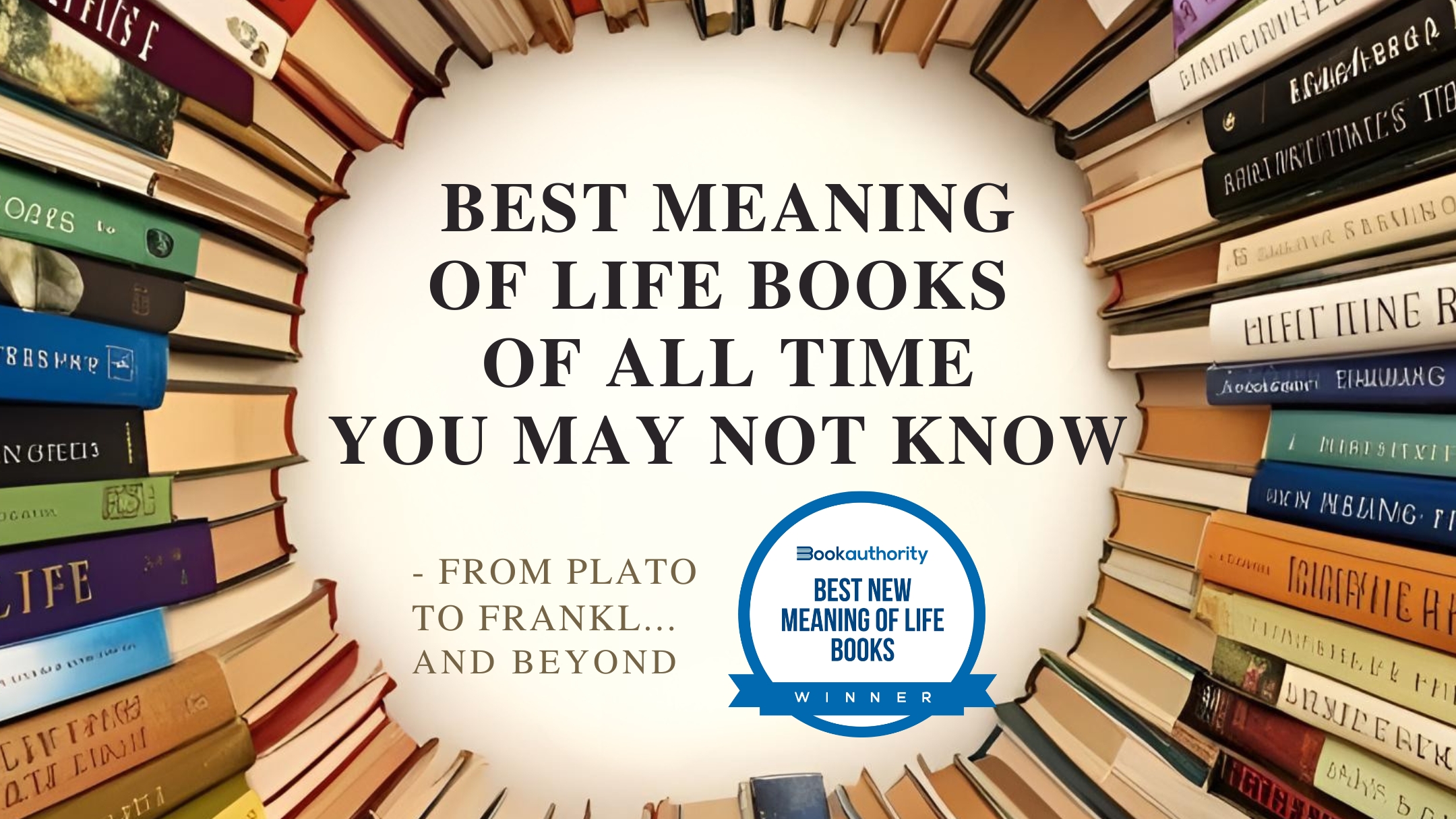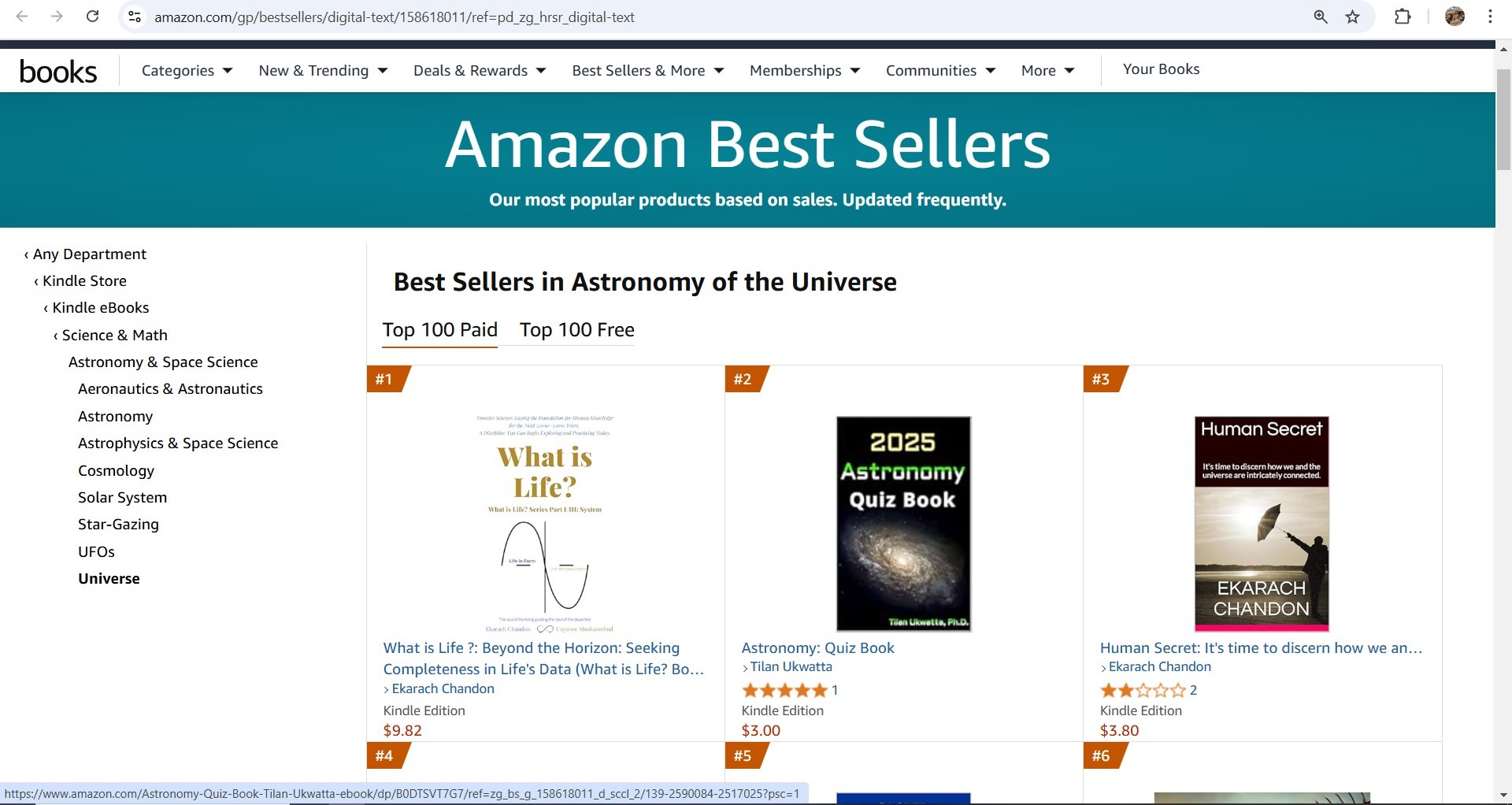เพลงที่ทำให้ Evangelion เป็นมากกว่าอนิเมะ: เปิดตำนาน A Cruel Angel’s Thesis
เพลง “A Cruel Angel’s Thesis” หรือที่รู้จักในชื่อภาษาญี่ปุ่นว่า “Zankoku na Tenshi no Tēze” ถือเป็นหนึ่งในเพลงประกอบอนิเมะที่ทรงอิทธิพลที่สุดในประวัติศาสตร์วัฒนธรรมป๊อปของญี่ปุ่นและทั่วโลก เพลงนี้ไม่เพียงแต่เป็นเพลงเปิดของอนิเมะ Neon Genesis Evangelion ที่ออกอากาศครั้งแรกเมื่อวันที่ 4 ตุลาคม 1995 ทางสถานี TV Tokyo เท่านั้น แต่ยังกลายเป็นสัญลักษณ์ที่สะท้อนถึงยุคทองของอนิเมะในทศวรรษ 1990s ซึ่งผสมผสานธีมปรัชญา จิตวิทยา และแอ็กชันได้อย่างลงตัว บทความนี้จะพาไปสำรวจประวัติการสร้าง ผลงาน และความโด่งดังของเพลงนี้อย่างละเอียด โดยอ้างอิงจากแหล่งข้อมูลที่น่าเชื่อถือ เพื่อให้เห็นภาพรวมการเดินทางจากเพลงประกอบอนิเมะธรรมดาสู่ไอคอนระดับโลก
ต้นกำเนิดและแรงบันดาลใจของเพลงนี้เกิดขึ้นในช่วงที่อนิเมะ Neon Genesis Evangelion กำลังอยู่ในขั้นตอนการผลิต โดยผู้กำกับ Hideaki Anno จากสตูดิโอ Gainax เดิมที Anno ต้องการใช้เพลงคลาสสิกจากโอเปร่ารัสเซียเรื่อง Prince Igor ชื่อ “Polovtsian Dances” ของ Alexander Borodin เป็นเพลงเปิด เพื่อสร้างความแปลกใหม่และทดลอง แต่สถานีโทรทัศน์ปฏิเสธเพราะเห็นว่าเพลงนั้น “ก้าวหน้าจนเกินไป” สำหรับอนิเมะที่ออกอากาศช่วงดึก จึงเปลี่ยนมาใช้เพลง J-Pop ซึ่งเป็นแนวเพลงยอดนิยมในญี่ปุ่นในเวลานั้น
คำร้องของเพลงเขียนโดย Neko Oikawa ที่ได้รับมอบหมายให้สร้างเนื้อหาที่ “ยากและปรัชญา” เพื่อสะท้อนธีมของอนิเมะที่เกี่ยวกับการต่อสู้ภายในจิตใจมนุษย์ ชะตากรรม และการเติบโต แม้ว่า Oikawa จะมีข้อมูลจำกัด เธอเพียงแค่ได้อ่านแผนเสนอโครงการและดูตอนแรกๆ ของอนิเมะแบบเร่งความเร็ว ใช้เวลาเพียง 2 ชั่วโมงในการเขียนคำร้องทั้งหมด โดยมองผ่านมุมมองของ “แม่” ที่ไม่อยากให้ลูกเติบโตและออกจากรัง แต่ต้องยอมรับชะตากรรม ชื่อเพลงได้รับแรงบันดาลใจจากมังงะ “A Cruel God Reigns” (Zankoku na Kami ga Shihai Suru) ของ Moto Hagio ซึ่งมีเนื้อหามืดมนเกี่ยวกับเด็กชายวัย 15 ปีที่เผชิญกับความทุกข์ทรมานจากความผิด การใช้ยาเสพติด และการค้าประเวณี แต่ Oikawa เลือกเน้นธีม “แม่และลูก” แทนโดยไม่ใช้ส่วนที่มืดมนเหล่านั้น
ทำนองเพลงแต่งโดย Hidetoshi Sato และจัดโดย Toshiyuki Omori โดยการผลิตทั้งหมดเกิดขึ้นแยกจากทีมอนิเมะเพื่อรักษาความเป็นอิสระและความสดใหม่ เพลงนี้มีส่วน instrumental ที่น่าสนใจ เช่น คอรัสในภาษาที่ไม่สามารถแปลได้ ซึ่งบางคนเชื่อว่าได้รับแรงบันดาลใจจากภาษาโบราณหรือ Dead Sea Scrolls นอกจากนี้ Anno ยังขอปรับคำร้องบางส่วน เช่น เปลี่ยนจาก “กลายเป็นอาวุธ” เป็น “กลายเป็นตำนาน” เพื่อเน้นความรักของแม่มากขึ้น และตัดคอรัสชายออกไป
Yoko Takahashi นักร้องนำ ได้รับเลือกแบบสุ่มและบันทึกเสียงโดยไม่ทราบรายละเอียดของอนิเมะมากนัก เธอพบกับ Anno ครั้งแรกในวันบันทึกเสียง และได้ยินเพลงเปิดตัวพร้อมเสียงของตัวเองครั้งแรกตอนออกอากาศทางทีวี เพลงนี้เป็นซิงเกิลที่ 11 ของเธอ และปล่อยออกมาในวันที่ 25 ตุลาคม 1995 ภายใต้ catalog KIDA-116 พร้อมเพลง “Fly Me to the Moon” ซึ่งเป็นเพลงปิดเรื่อง
กระบวนการผลิตเพลงเกิดขึ้นก่อนที่อนิเมะจะเสร็จสิ้น โดย Toshimichi Otsuki จาก King Records เป็นผู้ดูแลทีมดนตรีแยกต่างหากจาก Anno เพื่อหลีกเลี่ยงการแทรกแซง แม้กระบวนการจะเร่งรีบ เพลงกลับเข้ากับภาพเปิดเรื่องได้อย่างสมบูรณ์แบบ มีเวอร์ชัน instrumental สองเวอร์ชันในตอนจบของอนิเมะ ได้แก่ “The Heady Feeling of Freedom” ซึ่งเป็นชิ้นเศร้าๆ สำหรับเครื่องสายและกีตาร์ และ “Good, or Don’t Be” ที่เล่นด้วยเปียโนและกีตาร์เบาๆ เวอร์ชันคล้ายกันยังปรากฏในภาพยนตร์ Evangelion: Death and Rebirth
ตลอดหลายปี เพลงนี้มีเวอร์ชันรีมิกซ์และ cover มากมาย รวมถึงเวอร์ชัน Director’s Edit และเวอร์ชันในภาพยนตร์ Rebuild of Evangelion Takahashi ยังคงฝึกซ้อมร้องเพลงนี้ทุกวัน สูงสุด 2 ชั่วโมง โดยเฉพาะส่วน a cappella ที่ยาก เพื่อให้การแสดงสดยังคงความสดใหม่เหมือนเดิม ในปี 2021 เธอออกหนังสือสอนร้องเพลงนี้และ “Soul’s Refrain” โดยแนะนำให้เริ่มจาก tempo ช้าๆ และฝึก melody ก่อน
ความสำเร็จของเพลงนี้เกิดขึ้นอย่างรวดเร็ว หลังปล่อยออกมา เพลงขึ้นอันดับ 17 ในชาร์ต Oricon และอยู่ในชาร์ตนานถึง 61 สัปดาห์ กลายเป็นเพลงอนิเมะที่ได้รับความนิยมสูงสุดในญี่ปุ่น โดยติดอันดับต้นๆ ในโพล anisong และคาราโอเกะอย่างต่อเนื่อง ในปี 2025 เพลงนี้ยังติดอันดับ 4 ในชาร์ตคาราโอเกะ JOYSOUND สำหรับครึ่งปีแรก แสดงให้เห็นถึงความยั่งยืนแม้ผ่านไปเกือบ 30 ปี ตามข้อมูลจาก Japanese Society for Rights of Authors, Composers and Publishers เพลงนี้ยังคงเป็นเพลงที่สร้างรายได้จากลิขสิทธิ์สูงสุดในญี่ปุ่น
ในระดับสากล เพลงนี้ได้รับการยอมรับว่าเป็นเพลงเปิดอนิเมะที่จดจำได้มากที่สุด แม้แต่คนที่ไม่เคยดูอนิเมะก็รู้จัก มันกลายเป็น meme บนอินเทอร์เน็ต โดยเฉพาะในวิดีโอ YouTube และ Reddit ที่นำไป remix หรือ parody นอกจากนี้ยังถูกนำไป sample ในเพลงฮิปฮอป เช่น ในเพลง “Evangelica” ของศิลปินอเมริกัน Albe Back ในปี 2022 ความนิยมยังขยายไปสู่การแสดงสด โดย Takahashi แสดงเพลงนี้ในงานใหญ่ๆ เช่น Anime NYC 2025 ที่เธอชักชวนแฟนๆ ร้องตามทั้งฮอลล์, AnimagiC 2025 ในเยอรมนี และแม้แต่ในรายการปีใหม่ของสถานีโทรทัศน์ตุรกีในปี 2024
กว่าเกือบสามทศวรรษที่ผ่านมา “A Cruel Angel’s Thesis” ไม่ได้เป็นเพียงเพลงเปิดของ Neon Genesis Evangelion เท่านั้น แต่ได้กลายเป็นสัญลักษณ์ของวัฒนธรรมอนิเมะญี่ปุ่นที่หลอมรวมปรัชญา ดนตรี และอารมณ์ของยุคสมัยเข้าไว้ด้วยกันอย่างงดงาม เสียงร้องของ Yoko Takahashi ไม่ได้เพียงปลุกผู้ชมให้ตื่นขึ้นในตอนต้นของทุกตอน แต่ยังปลุกให้คนทั้งรุ่นหันกลับมามอง “ตัวตน” และ “ความหมายของการเติบโต” ที่ Evangelion ต้องการสื่อ
ทุกครั้งที่เสียงอินโทรแรกดังขึ้น ความทรงจำของแฟน ๆ ทั่วโลกก็ยังคงถ่ายทอดต่อกันเหมือนเทวทูตที่ไม่เคยหลับใหล เพลงนี้พิสูจน์ให้เห็นว่า “ดนตรี” สามารถสร้างพลังให้ภาพยนตร์หรืออนิเมะกลายเป็นตำนานได้จริง และแม้โลกจะเปลี่ยนไปเพียงใด ท่วงทำนองแห่งเทวทูตผู้โหดร้ายนี้…ก็จะยังคงก้องอยู่ในใจผู้คนตราบนานเท่านาน
#ลุงเล่าหลานฟัง
https://youtu.be/y5wkebBCwAE
เพลง “A Cruel Angel’s Thesis” หรือที่รู้จักในชื่อภาษาญี่ปุ่นว่า “Zankoku na Tenshi no Tēze” ถือเป็นหนึ่งในเพลงประกอบอนิเมะที่ทรงอิทธิพลที่สุดในประวัติศาสตร์วัฒนธรรมป๊อปของญี่ปุ่นและทั่วโลก เพลงนี้ไม่เพียงแต่เป็นเพลงเปิดของอนิเมะ Neon Genesis Evangelion ที่ออกอากาศครั้งแรกเมื่อวันที่ 4 ตุลาคม 1995 ทางสถานี TV Tokyo เท่านั้น แต่ยังกลายเป็นสัญลักษณ์ที่สะท้อนถึงยุคทองของอนิเมะในทศวรรษ 1990s ซึ่งผสมผสานธีมปรัชญา จิตวิทยา และแอ็กชันได้อย่างลงตัว บทความนี้จะพาไปสำรวจประวัติการสร้าง ผลงาน และความโด่งดังของเพลงนี้อย่างละเอียด โดยอ้างอิงจากแหล่งข้อมูลที่น่าเชื่อถือ เพื่อให้เห็นภาพรวมการเดินทางจากเพลงประกอบอนิเมะธรรมดาสู่ไอคอนระดับโลก
ต้นกำเนิดและแรงบันดาลใจของเพลงนี้เกิดขึ้นในช่วงที่อนิเมะ Neon Genesis Evangelion กำลังอยู่ในขั้นตอนการผลิต โดยผู้กำกับ Hideaki Anno จากสตูดิโอ Gainax เดิมที Anno ต้องการใช้เพลงคลาสสิกจากโอเปร่ารัสเซียเรื่อง Prince Igor ชื่อ “Polovtsian Dances” ของ Alexander Borodin เป็นเพลงเปิด เพื่อสร้างความแปลกใหม่และทดลอง แต่สถานีโทรทัศน์ปฏิเสธเพราะเห็นว่าเพลงนั้น “ก้าวหน้าจนเกินไป” สำหรับอนิเมะที่ออกอากาศช่วงดึก จึงเปลี่ยนมาใช้เพลง J-Pop ซึ่งเป็นแนวเพลงยอดนิยมในญี่ปุ่นในเวลานั้น
คำร้องของเพลงเขียนโดย Neko Oikawa ที่ได้รับมอบหมายให้สร้างเนื้อหาที่ “ยากและปรัชญา” เพื่อสะท้อนธีมของอนิเมะที่เกี่ยวกับการต่อสู้ภายในจิตใจมนุษย์ ชะตากรรม และการเติบโต แม้ว่า Oikawa จะมีข้อมูลจำกัด เธอเพียงแค่ได้อ่านแผนเสนอโครงการและดูตอนแรกๆ ของอนิเมะแบบเร่งความเร็ว ใช้เวลาเพียง 2 ชั่วโมงในการเขียนคำร้องทั้งหมด โดยมองผ่านมุมมองของ “แม่” ที่ไม่อยากให้ลูกเติบโตและออกจากรัง แต่ต้องยอมรับชะตากรรม ชื่อเพลงได้รับแรงบันดาลใจจากมังงะ “A Cruel God Reigns” (Zankoku na Kami ga Shihai Suru) ของ Moto Hagio ซึ่งมีเนื้อหามืดมนเกี่ยวกับเด็กชายวัย 15 ปีที่เผชิญกับความทุกข์ทรมานจากความผิด การใช้ยาเสพติด และการค้าประเวณี แต่ Oikawa เลือกเน้นธีม “แม่และลูก” แทนโดยไม่ใช้ส่วนที่มืดมนเหล่านั้น
ทำนองเพลงแต่งโดย Hidetoshi Sato และจัดโดย Toshiyuki Omori โดยการผลิตทั้งหมดเกิดขึ้นแยกจากทีมอนิเมะเพื่อรักษาความเป็นอิสระและความสดใหม่ เพลงนี้มีส่วน instrumental ที่น่าสนใจ เช่น คอรัสในภาษาที่ไม่สามารถแปลได้ ซึ่งบางคนเชื่อว่าได้รับแรงบันดาลใจจากภาษาโบราณหรือ Dead Sea Scrolls นอกจากนี้ Anno ยังขอปรับคำร้องบางส่วน เช่น เปลี่ยนจาก “กลายเป็นอาวุธ” เป็น “กลายเป็นตำนาน” เพื่อเน้นความรักของแม่มากขึ้น และตัดคอรัสชายออกไป
Yoko Takahashi นักร้องนำ ได้รับเลือกแบบสุ่มและบันทึกเสียงโดยไม่ทราบรายละเอียดของอนิเมะมากนัก เธอพบกับ Anno ครั้งแรกในวันบันทึกเสียง และได้ยินเพลงเปิดตัวพร้อมเสียงของตัวเองครั้งแรกตอนออกอากาศทางทีวี เพลงนี้เป็นซิงเกิลที่ 11 ของเธอ และปล่อยออกมาในวันที่ 25 ตุลาคม 1995 ภายใต้ catalog KIDA-116 พร้อมเพลง “Fly Me to the Moon” ซึ่งเป็นเพลงปิดเรื่อง
กระบวนการผลิตเพลงเกิดขึ้นก่อนที่อนิเมะจะเสร็จสิ้น โดย Toshimichi Otsuki จาก King Records เป็นผู้ดูแลทีมดนตรีแยกต่างหากจาก Anno เพื่อหลีกเลี่ยงการแทรกแซง แม้กระบวนการจะเร่งรีบ เพลงกลับเข้ากับภาพเปิดเรื่องได้อย่างสมบูรณ์แบบ มีเวอร์ชัน instrumental สองเวอร์ชันในตอนจบของอนิเมะ ได้แก่ “The Heady Feeling of Freedom” ซึ่งเป็นชิ้นเศร้าๆ สำหรับเครื่องสายและกีตาร์ และ “Good, or Don’t Be” ที่เล่นด้วยเปียโนและกีตาร์เบาๆ เวอร์ชันคล้ายกันยังปรากฏในภาพยนตร์ Evangelion: Death and Rebirth
ตลอดหลายปี เพลงนี้มีเวอร์ชันรีมิกซ์และ cover มากมาย รวมถึงเวอร์ชัน Director’s Edit และเวอร์ชันในภาพยนตร์ Rebuild of Evangelion Takahashi ยังคงฝึกซ้อมร้องเพลงนี้ทุกวัน สูงสุด 2 ชั่วโมง โดยเฉพาะส่วน a cappella ที่ยาก เพื่อให้การแสดงสดยังคงความสดใหม่เหมือนเดิม ในปี 2021 เธอออกหนังสือสอนร้องเพลงนี้และ “Soul’s Refrain” โดยแนะนำให้เริ่มจาก tempo ช้าๆ และฝึก melody ก่อน
ความสำเร็จของเพลงนี้เกิดขึ้นอย่างรวดเร็ว หลังปล่อยออกมา เพลงขึ้นอันดับ 17 ในชาร์ต Oricon และอยู่ในชาร์ตนานถึง 61 สัปดาห์ กลายเป็นเพลงอนิเมะที่ได้รับความนิยมสูงสุดในญี่ปุ่น โดยติดอันดับต้นๆ ในโพล anisong และคาราโอเกะอย่างต่อเนื่อง ในปี 2025 เพลงนี้ยังติดอันดับ 4 ในชาร์ตคาราโอเกะ JOYSOUND สำหรับครึ่งปีแรก แสดงให้เห็นถึงความยั่งยืนแม้ผ่านไปเกือบ 30 ปี ตามข้อมูลจาก Japanese Society for Rights of Authors, Composers and Publishers เพลงนี้ยังคงเป็นเพลงที่สร้างรายได้จากลิขสิทธิ์สูงสุดในญี่ปุ่น
ในระดับสากล เพลงนี้ได้รับการยอมรับว่าเป็นเพลงเปิดอนิเมะที่จดจำได้มากที่สุด แม้แต่คนที่ไม่เคยดูอนิเมะก็รู้จัก มันกลายเป็น meme บนอินเทอร์เน็ต โดยเฉพาะในวิดีโอ YouTube และ Reddit ที่นำไป remix หรือ parody นอกจากนี้ยังถูกนำไป sample ในเพลงฮิปฮอป เช่น ในเพลง “Evangelica” ของศิลปินอเมริกัน Albe Back ในปี 2022 ความนิยมยังขยายไปสู่การแสดงสด โดย Takahashi แสดงเพลงนี้ในงานใหญ่ๆ เช่น Anime NYC 2025 ที่เธอชักชวนแฟนๆ ร้องตามทั้งฮอลล์, AnimagiC 2025 ในเยอรมนี และแม้แต่ในรายการปีใหม่ของสถานีโทรทัศน์ตุรกีในปี 2024
กว่าเกือบสามทศวรรษที่ผ่านมา “A Cruel Angel’s Thesis” ไม่ได้เป็นเพียงเพลงเปิดของ Neon Genesis Evangelion เท่านั้น แต่ได้กลายเป็นสัญลักษณ์ของวัฒนธรรมอนิเมะญี่ปุ่นที่หลอมรวมปรัชญา ดนตรี และอารมณ์ของยุคสมัยเข้าไว้ด้วยกันอย่างงดงาม เสียงร้องของ Yoko Takahashi ไม่ได้เพียงปลุกผู้ชมให้ตื่นขึ้นในตอนต้นของทุกตอน แต่ยังปลุกให้คนทั้งรุ่นหันกลับมามอง “ตัวตน” และ “ความหมายของการเติบโต” ที่ Evangelion ต้องการสื่อ
ทุกครั้งที่เสียงอินโทรแรกดังขึ้น ความทรงจำของแฟน ๆ ทั่วโลกก็ยังคงถ่ายทอดต่อกันเหมือนเทวทูตที่ไม่เคยหลับใหล เพลงนี้พิสูจน์ให้เห็นว่า “ดนตรี” สามารถสร้างพลังให้ภาพยนตร์หรืออนิเมะกลายเป็นตำนานได้จริง และแม้โลกจะเปลี่ยนไปเพียงใด ท่วงทำนองแห่งเทวทูตผู้โหดร้ายนี้…ก็จะยังคงก้องอยู่ในใจผู้คนตราบนานเท่านาน
#ลุงเล่าหลานฟัง
https://youtu.be/y5wkebBCwAE
🎶 เพลงที่ทำให้ Evangelion เป็นมากกว่าอนิเมะ: เปิดตำนาน A Cruel Angel’s Thesis
▶️ เพลง “A Cruel Angel’s Thesis” หรือที่รู้จักในชื่อภาษาญี่ปุ่นว่า “Zankoku na Tenshi no Tēze” ถือเป็นหนึ่งในเพลงประกอบอนิเมะที่ทรงอิทธิพลที่สุดในประวัติศาสตร์วัฒนธรรมป๊อปของญี่ปุ่นและทั่วโลก เพลงนี้ไม่เพียงแต่เป็นเพลงเปิดของอนิเมะ Neon Genesis Evangelion ที่ออกอากาศครั้งแรกเมื่อวันที่ 4 ตุลาคม 1995 ทางสถานี TV Tokyo เท่านั้น แต่ยังกลายเป็นสัญลักษณ์ที่สะท้อนถึงยุคทองของอนิเมะในทศวรรษ 1990s ซึ่งผสมผสานธีมปรัชญา จิตวิทยา และแอ็กชันได้อย่างลงตัว บทความนี้จะพาไปสำรวจประวัติการสร้าง ผลงาน และความโด่งดังของเพลงนี้อย่างละเอียด โดยอ้างอิงจากแหล่งข้อมูลที่น่าเชื่อถือ เพื่อให้เห็นภาพรวมการเดินทางจากเพลงประกอบอนิเมะธรรมดาสู่ไอคอนระดับโลก
🎂 ต้นกำเนิดและแรงบันดาลใจของเพลงนี้เกิดขึ้นในช่วงที่อนิเมะ Neon Genesis Evangelion กำลังอยู่ในขั้นตอนการผลิต โดยผู้กำกับ Hideaki Anno จากสตูดิโอ Gainax เดิมที Anno ต้องการใช้เพลงคลาสสิกจากโอเปร่ารัสเซียเรื่อง Prince Igor ชื่อ “Polovtsian Dances” ของ Alexander Borodin เป็นเพลงเปิด เพื่อสร้างความแปลกใหม่และทดลอง แต่สถานีโทรทัศน์ปฏิเสธเพราะเห็นว่าเพลงนั้น “ก้าวหน้าจนเกินไป” สำหรับอนิเมะที่ออกอากาศช่วงดึก จึงเปลี่ยนมาใช้เพลง J-Pop ซึ่งเป็นแนวเพลงยอดนิยมในญี่ปุ่นในเวลานั้น
✍️ คำร้องของเพลงเขียนโดย Neko Oikawa ที่ได้รับมอบหมายให้สร้างเนื้อหาที่ “ยากและปรัชญา” เพื่อสะท้อนธีมของอนิเมะที่เกี่ยวกับการต่อสู้ภายในจิตใจมนุษย์ ชะตากรรม และการเติบโต แม้ว่า Oikawa จะมีข้อมูลจำกัด เธอเพียงแค่ได้อ่านแผนเสนอโครงการและดูตอนแรกๆ ของอนิเมะแบบเร่งความเร็ว ใช้เวลาเพียง 2 ชั่วโมงในการเขียนคำร้องทั้งหมด โดยมองผ่านมุมมองของ “แม่” ที่ไม่อยากให้ลูกเติบโตและออกจากรัง แต่ต้องยอมรับชะตากรรม ชื่อเพลงได้รับแรงบันดาลใจจากมังงะ “A Cruel God Reigns” (Zankoku na Kami ga Shihai Suru) ของ Moto Hagio ซึ่งมีเนื้อหามืดมนเกี่ยวกับเด็กชายวัย 15 ปีที่เผชิญกับความทุกข์ทรมานจากความผิด การใช้ยาเสพติด และการค้าประเวณี แต่ Oikawa เลือกเน้นธีม “แม่และลูก” แทนโดยไม่ใช้ส่วนที่มืดมนเหล่านั้น
🎼 ทำนองเพลงแต่งโดย Hidetoshi Sato และจัดโดย Toshiyuki Omori โดยการผลิตทั้งหมดเกิดขึ้นแยกจากทีมอนิเมะเพื่อรักษาความเป็นอิสระและความสดใหม่ เพลงนี้มีส่วน instrumental ที่น่าสนใจ เช่น คอรัสในภาษาที่ไม่สามารถแปลได้ ซึ่งบางคนเชื่อว่าได้รับแรงบันดาลใจจากภาษาโบราณหรือ Dead Sea Scrolls นอกจากนี้ Anno ยังขอปรับคำร้องบางส่วน เช่น เปลี่ยนจาก “กลายเป็นอาวุธ” เป็น “กลายเป็นตำนาน” เพื่อเน้นความรักของแม่มากขึ้น และตัดคอรัสชายออกไป
🎤 Yoko Takahashi นักร้องนำ ได้รับเลือกแบบสุ่มและบันทึกเสียงโดยไม่ทราบรายละเอียดของอนิเมะมากนัก เธอพบกับ Anno ครั้งแรกในวันบันทึกเสียง และได้ยินเพลงเปิดตัวพร้อมเสียงของตัวเองครั้งแรกตอนออกอากาศทางทีวี เพลงนี้เป็นซิงเกิลที่ 11 ของเธอ และปล่อยออกมาในวันที่ 25 ตุลาคม 1995 ภายใต้ catalog KIDA-116 พร้อมเพลง “Fly Me to the Moon” ซึ่งเป็นเพลงปิดเรื่อง
💿 กระบวนการผลิตเพลงเกิดขึ้นก่อนที่อนิเมะจะเสร็จสิ้น โดย Toshimichi Otsuki จาก King Records เป็นผู้ดูแลทีมดนตรีแยกต่างหากจาก Anno เพื่อหลีกเลี่ยงการแทรกแซง แม้กระบวนการจะเร่งรีบ เพลงกลับเข้ากับภาพเปิดเรื่องได้อย่างสมบูรณ์แบบ มีเวอร์ชัน instrumental สองเวอร์ชันในตอนจบของอนิเมะ ได้แก่ “The Heady Feeling of Freedom” ซึ่งเป็นชิ้นเศร้าๆ สำหรับเครื่องสายและกีตาร์ และ “Good, or Don’t Be” ที่เล่นด้วยเปียโนและกีตาร์เบาๆ เวอร์ชันคล้ายกันยังปรากฏในภาพยนตร์ Evangelion: Death and Rebirth
🎗️ตลอดหลายปี เพลงนี้มีเวอร์ชันรีมิกซ์และ cover มากมาย รวมถึงเวอร์ชัน Director’s Edit และเวอร์ชันในภาพยนตร์ Rebuild of Evangelion Takahashi ยังคงฝึกซ้อมร้องเพลงนี้ทุกวัน สูงสุด 2 ชั่วโมง โดยเฉพาะส่วน a cappella ที่ยาก เพื่อให้การแสดงสดยังคงความสดใหม่เหมือนเดิม ในปี 2021 เธอออกหนังสือสอนร้องเพลงนี้และ “Soul’s Refrain” โดยแนะนำให้เริ่มจาก tempo ช้าๆ และฝึก melody ก่อน
🏆 ความสำเร็จของเพลงนี้เกิดขึ้นอย่างรวดเร็ว หลังปล่อยออกมา เพลงขึ้นอันดับ 17 ในชาร์ต Oricon และอยู่ในชาร์ตนานถึง 61 สัปดาห์ กลายเป็นเพลงอนิเมะที่ได้รับความนิยมสูงสุดในญี่ปุ่น โดยติดอันดับต้นๆ ในโพล anisong และคาราโอเกะอย่างต่อเนื่อง ในปี 2025 เพลงนี้ยังติดอันดับ 4 ในชาร์ตคาราโอเกะ JOYSOUND สำหรับครึ่งปีแรก แสดงให้เห็นถึงความยั่งยืนแม้ผ่านไปเกือบ 30 ปี ตามข้อมูลจาก Japanese Society for Rights of Authors, Composers and Publishers เพลงนี้ยังคงเป็นเพลงที่สร้างรายได้จากลิขสิทธิ์สูงสุดในญี่ปุ่น
🌏 ในระดับสากล เพลงนี้ได้รับการยอมรับว่าเป็นเพลงเปิดอนิเมะที่จดจำได้มากที่สุด แม้แต่คนที่ไม่เคยดูอนิเมะก็รู้จัก มันกลายเป็น meme บนอินเทอร์เน็ต โดยเฉพาะในวิดีโอ YouTube และ Reddit ที่นำไป remix หรือ parody นอกจากนี้ยังถูกนำไป sample ในเพลงฮิปฮอป เช่น ในเพลง “Evangelica” ของศิลปินอเมริกัน Albe Back ในปี 2022 ความนิยมยังขยายไปสู่การแสดงสด โดย Takahashi แสดงเพลงนี้ในงานใหญ่ๆ เช่น Anime NYC 2025 ที่เธอชักชวนแฟนๆ ร้องตามทั้งฮอลล์, AnimagiC 2025 ในเยอรมนี และแม้แต่ในรายการปีใหม่ของสถานีโทรทัศน์ตุรกีในปี 2024
⌛ กว่าเกือบสามทศวรรษที่ผ่านมา “A Cruel Angel’s Thesis” ไม่ได้เป็นเพียงเพลงเปิดของ Neon Genesis Evangelion เท่านั้น แต่ได้กลายเป็นสัญลักษณ์ของวัฒนธรรมอนิเมะญี่ปุ่นที่หลอมรวมปรัชญา ดนตรี และอารมณ์ของยุคสมัยเข้าไว้ด้วยกันอย่างงดงาม เสียงร้องของ Yoko Takahashi ไม่ได้เพียงปลุกผู้ชมให้ตื่นขึ้นในตอนต้นของทุกตอน แต่ยังปลุกให้คนทั้งรุ่นหันกลับมามอง “ตัวตน” และ “ความหมายของการเติบโต” ที่ Evangelion ต้องการสื่อ
📻 ทุกครั้งที่เสียงอินโทรแรกดังขึ้น ความทรงจำของแฟน ๆ ทั่วโลกก็ยังคงถ่ายทอดต่อกันเหมือนเทวทูตที่ไม่เคยหลับใหล เพลงนี้พิสูจน์ให้เห็นว่า “ดนตรี” สามารถสร้างพลังให้ภาพยนตร์หรืออนิเมะกลายเป็นตำนานได้จริง และแม้โลกจะเปลี่ยนไปเพียงใด ท่วงทำนองแห่งเทวทูตผู้โหดร้ายนี้…ก็จะยังคงก้องอยู่ในใจผู้คนตราบนานเท่านาน 💫
#ลุงเล่าหลานฟัง
https://youtu.be/y5wkebBCwAE

0 ความคิดเห็น
0 การแบ่งปัน
139 มุมมอง
0 รีวิว












